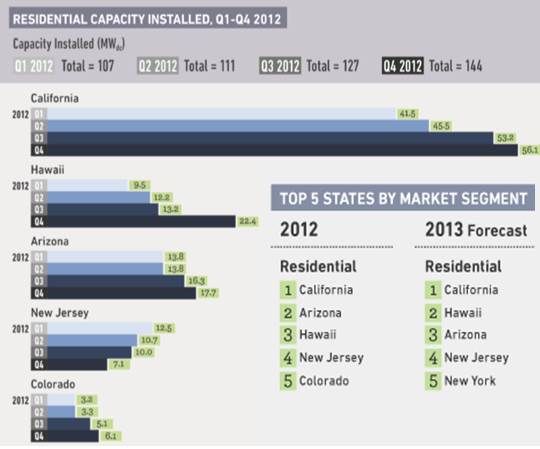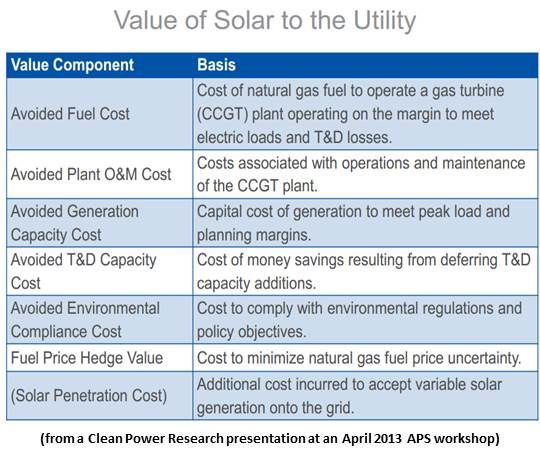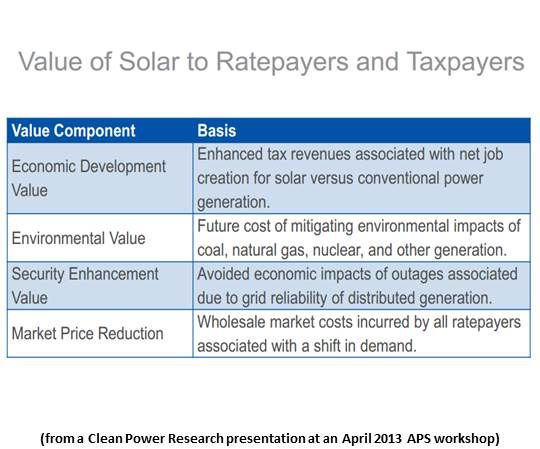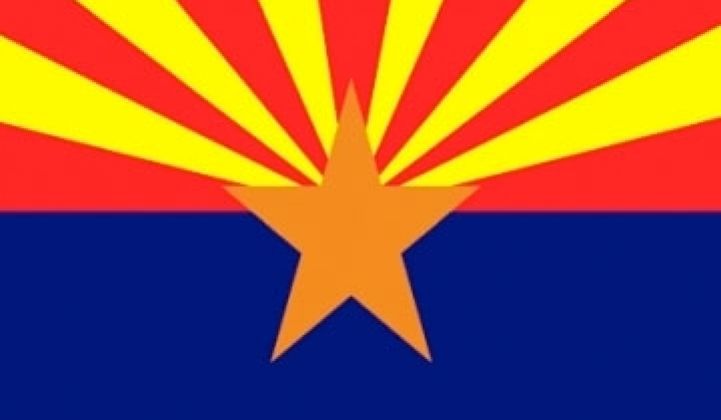As Greentech Media heads to Phoenix for its annual Solar Summit, April 22-24, it will find an Arizona solar industry in bipartisan tumult. Arizona Public Service (APS), the state’s dominant investor-owned utility, proposed doing away with the Arizona renewables standard (RES) distributed generation (DG) carve-out and net metering.
“APS was ordered to address how it would comply with the RES rules if direct cash incentives were no longer available and it no longer received Renewable Energy Credits (RECs) from customers,” an APS representative testified to the Arizona Corporation Commission (ACC), which regulates the state’s utilities. “APS proposes to track the energy produced...[but] there would no longer be a requirement that affected utilities acquire a particular amount of RECs.”
“They view the recent election of an all-Republican ACC as an opportunity to kill the independent solar market in Arizona,” said Jason Rose, spokesperson for Tell Utilities Solar Won’t Be Killed (TUSK), a newly formed organization led by former Arizona Republican Congressman Barry Goldwater, Jr.
TUSK believes it would be “very un-Republican” to take energy choice away from Arizonans, Rose said.
"We have no greater resource than our sun,” Goldwater states on the TUSK website. “We can't let solar energy -- and all its advantages and benefits it provides us -- be pushed aside by monopolies wanting to limit energy choice. That's not the conservative way and it's not the American way."
TUSK’s statewide March 20-21 poll oversampled Republicans, yet still showed “exceptionally strong support for solar programs in Arizona and particularly net metering,” according to Rose.
The APS call for an end to net metering, Rose said, “is very bad politics and very bad policy.”
“The APS regulatory strategy has turned into a utility wish list,” said Republican and Rose Law Group Head of Renewable Energy Court Rich. “They’re asking to get rid of the DG carve-out and at the same time trying to destroy net metering. If they are successful, their customers will have no more choice and APS will be the only show in town.”
Because Arizona’s distributed generation is almost entirely solar, the effort to end the DG carve-out, according to Rich, is because the ACC recently cut utility solar incentives sharply.

Source: GTM Research 2012 U.S. Solar Market Report
The state’s mandate requires regulated utilities to have 15 percent renewables by 2025. The carve-out requires them to obtain 30 percent of that from DG. But, due to the incentive cuts, there would be no budget for APS to obtain the RECs needed for carve-out compliance.
APS, therefore, proposed essentially eliminating the carve-out. A better answer, Court said, “is changing how we define compliance. Compliance would not require them to purchase the RECs but to demonstrate compliance by counting systems hosted on its grid.” That would, he said, preserve the DG carve-out and preserve the REC owner’s property rights.
“The residential solar market in Arizona will very soon be incentive-free,” Court said. “This would not inhibit it.” But by eliminating the carve-out and net metering, APS would “destroy its customers’ ability to choose solar.”
APS, Court added, leads the state’s utilities. Tucson Electric Power (TEP) and Salt River Project (SRP), the other two major players, would likely follow.
“Net metering gives our companies market access,” said Ben Higgins, Legislative Director for solar installer Mainstream Energy/REC Solar, “and gives solar customers fair compensation for the electricity they produce.”
“The DG carve-out ensures that ratepayers can participate in the adoption of solar,” said Technicians for Sustainability owner Kevin Koch, another solar installer. “Without it, ratepayers could be paying for utilities to install solar without the option to install it on their own homes.”
The APS rationale for eliminating the carve-out, Koch noted, is that it is no longer necessary. But that might not be true after the federal investment tax credit rolls back to 10 percent in 2017, or if third-party ownership rules change, or net metering changes or energy rates drop or solar prices rise.
APS is on track to hit 15 percent renewables eight years to ten years early, said policy advisor and former ACC policy analyst Nancy LaPlaca. Getting rid of the carve-out would relieve them of their only other compliance concern. And, she added, as a recent utility industry study from Edison Electric Institute (EEI) reported, “distributed solar could destroy the utility business model and leave them with a lot of stranded coal plants and a smaller group of ratepayers to pay for the rising costs of coal fuel.”
Instead of eliminating solar supports, LaPlaca said, Arizona should institute “aggregated and virtual net metering, PACE, community solar programs and other policy tools that would allow solar to flourish.”
“APS is essentially asking the ACC to pass a monopoly protection act,” Court said. “They say they are trying to protect ratepayers, but I am not aware of any industry in the history of the world where more competition led to higher prices. I don’t blame them for wanting to make more money. That doesn’t make them bad. That’s what businesses do. They try to eliminate their competition.”





